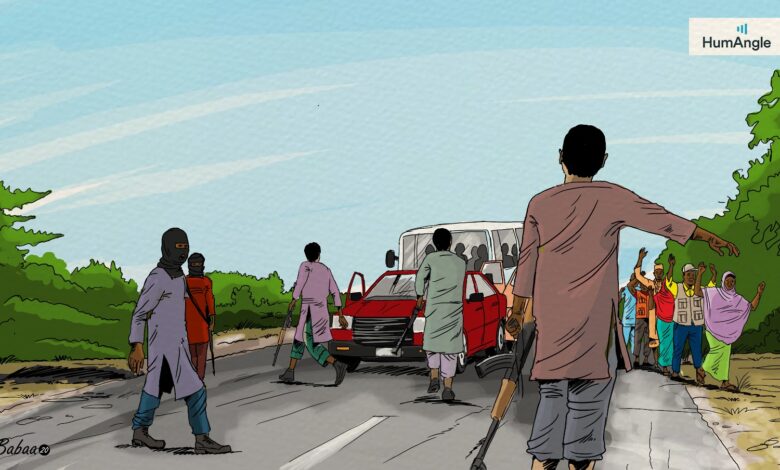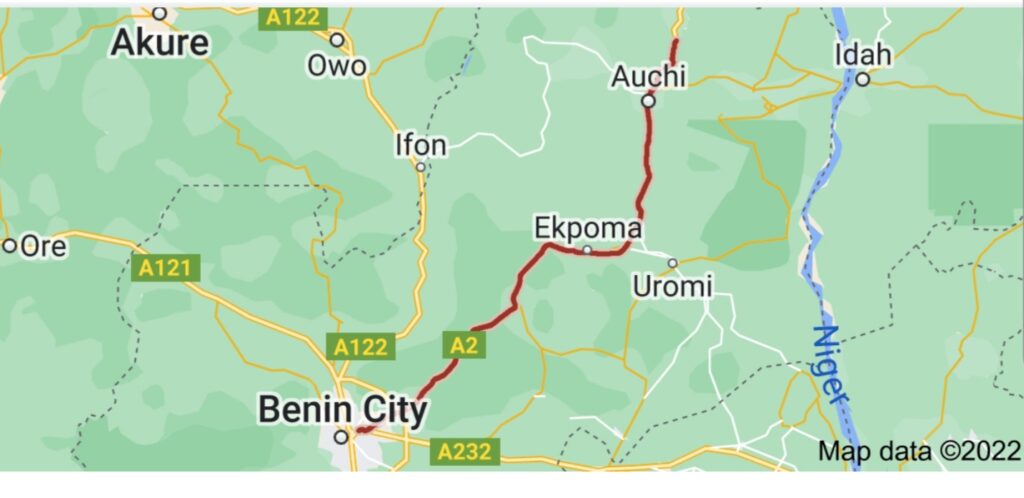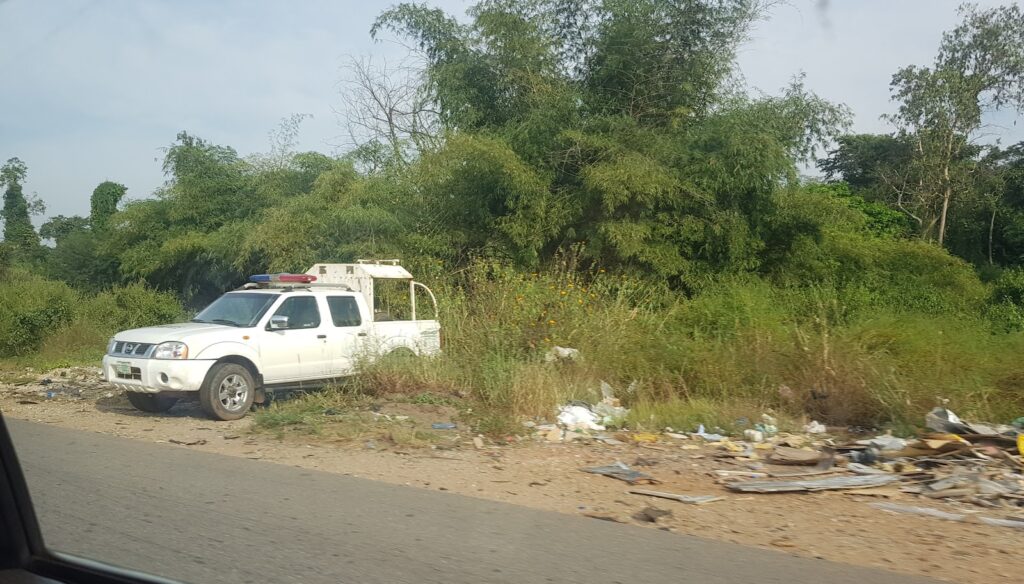Southern Nigeria Roads Are Under Siege
Kidnapping for ransom is fast becoming a regular occurrence on the roads in southern Nigeria despite the activities of Southwest Security Network codenamed Amotekun.

Aisha Safaudeen (not real name), a student of University of Nigeria (UNN) Nsukka in Nigeria’s Southeast would have probably stayed at home in North-central Kogi State if she had known the road wasn’t safe.
Seeing her off on Oct 24, her relatives wished her a safe journey. But she didn’t get to her destination safely. Her vehicle ran into kidnappers on the road. They waylaid the bus and took all the helpless passengers, including Aisha, into custody.
She shouldn’t even have been on the road on that day. For eight months, Nigerian universities academic calendar was on hold and students were at home due to the strike action embarked on by the Academic Staff Union of Universities (ASUU).
The lecturers went on strike over the federal government’s refusal to implement a 2009 agreement on matters bordering on increased funding of universities and increasing lecturers’ salaries.
The industrial action was called off in mid-October, after a Court of Appeal’s order. So, students had to leave their respective homes to resume classes in various parts of the country.
Traumatised
Aisha’s brother, Muhammed, who spoke with HumAngle’s Crisis Room said his sister was abducted around Auchi road. Soon, the kidnappers reached out to Aisha’s relatives to demand ransom.
“They called on the same day and demanded ₦20 million ransom. It was quite devastating for us because it was the first time something like this has happened to anyone in the family,” said Muhammed.
“We didn’t know where to start from; we had to beg but they were beating her and threatening to kill her.”
By viciously flogging victims, kidnappers force their relatives to accede to their requests of ransom payments. Aside from physically assaulting their victims, they kill those whose relatives delay ransom. Even when security operatives forbid ransom payments, traumatised families are often convinced that they had no better option than to play the kidnappers’ game.

In order not to lose their daughter, Aisha’s parents rallied around other family members to ensure that the victim returned home unharmed. By the fourth day, they had gathered ₦1 million.
“My sister was held for five days but on the fourth day, they agreed to take a million naira. I had just gotten my salary so I had to drop my ₦150,000 monthly pay.”
The following day, Aisha’s father took the cash to Auchi and his daughter was released to him. Eventually, the undergraduate could not resume school as she was brought home traumatised.
“My sister is scared of traveling. She is having nightmares and she has not been sleeping despite sleeping pills. Now, we don’t have anything but we thank God she’s alive and no much harm was done,” her devastated brother said.
Kidnappers on the road
There is a growing insecurity in Southern Nigeria as kidnappers continue to attack travellers.
On Oct. 27, many motorists and passengers travelling on the Lagos-Ibadan Expressway were abducted. One of the victims, Aminat Taiwo, said her father paid ₦3.2 million to her kidnappers to secure her release alongside her friend, Tobi Orekoya, two days later.
The 22-year-old survivor added that others whose relatives could not raise ransom were shot dead in her presence.
Adigun Agbaje, a former Deputy Vice Chancellor of the University of Ibadan, who was also released after two days in captivity narrated how he was kidnapped in a statement made available to journalists. But he was silent on the amount of money paid for his freedom.
“I was shot in the head during the abduction process. I thank God that the bullet that went through my car’s windscreen left only a skin-deep wound on my head, even though it left a gaping hole in the cap I was wearing.
“…My heart goes to those young female undergraduates, the young men and the middle-aged person I left behind with the kidnappers. I may not be reachable now but as soon as I get medical clearance from my doctors, I will be thanking all of you personally,” part of his statement read.
On Oct. 28, some armed men whisked away four travellers along Irele-Ekiti road in the Southwest. The incessant development, HumAngle understands, shows that the southwest, which many referred to as safest oases in the country, is under siege.

Way forward
While the police say they have restructured the security apparatus on highways, there are fears that the kidnappers will remain a challenge.
“Nigeria police love to have checkpoints on roads but they hardly do due diligence so it is not enough to flood the roads to contain kidnapping, there is need for local intelligence gathering.
“The danger associated with these repeated kidnappings is that Southern Nigeria has more private tertiary institutions and if the kidnappers stop getting their prey on the road, they may start to attack private schools located in that jurisdiction,” said Jide Aluko, a businessman who plies Lagos-Ibadan expressway daily.
Though governors in Southern Nigeria created Regional Security Networks such as Amotekun and Ebubeagu to tackle kidnappings and killings, these have remained rampant in the region. Recent attacks denote failure of the security networks to end the hazardous activities of those tormenting highways.
Now, as Southern Nigeria brims with criminals, residents are scared of travelling as Christmas approaches.
Speaking on the solution to the menace, Timothy Innocent, a security analyst, advised state governors to equip security operatives with more sophisticated equipment and technology such as acquisition of drones and other relevant tools that will help locate the kidnappers in the forests.
“The governors need to act quickly before the situation escalates. The demons of these road should be tamed so as not to have the Abuja-Kaduna expressway experience. The best time is now!”
Support Our Journalism
There are millions of ordinary people affected by conflict in Africa whose stories are missing in the mainstream media. HumAngle is determined to tell those challenging and under-reported stories, hoping that the people impacted by these conflicts will find the safety and security they deserve.
To ensure that we continue to provide public service coverage, we have a small favour to ask you. We want you to be part of our journalistic endeavour by contributing a token to us.
Your donation will further promote a robust, free, and independent media.
Donate HereStay Closer To The Stories That Matter




